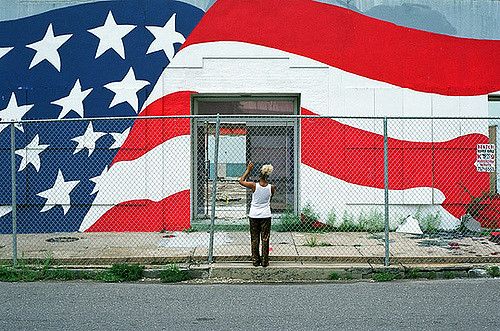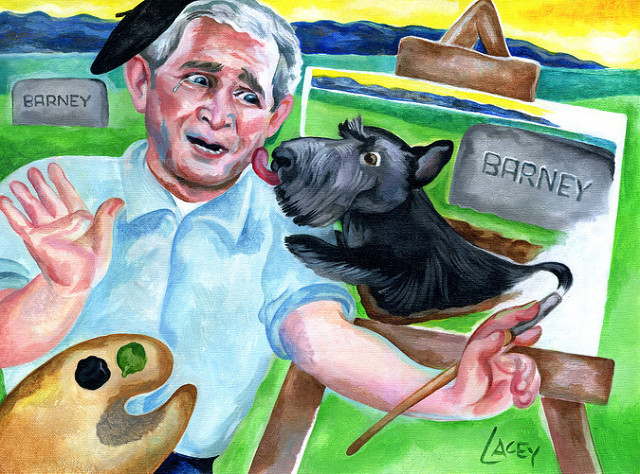It began as Colin Kaepernick’s protest against violent policing of African Americans, but now the protests have evolved. Taking a knee during ‘The Star-Spangled Banner’ is another version of protests against Confederate statues. This speaks to how we regard US history and its legacy of racism. The issue now is more than police violence: it concerns history.
The controversy’s roots lie in a two hundred year-old song. ‘The Star-Spangled Banner’ – originally titled ‘Defense of Fort M’Henry’ – is a lyric poem by a man who had a much more successful career as an attorney. Key’s collected poetry, published posthumously in 1857 with an introduction from his brother-in-law and US Supreme Court justice Roger Taney of Dred Scott fame, is a too-lengthy testimony to Key’s incapacity as a poet. As someone who makes a living writing about and teaching nineteenth-century American literature, I find Key’s poetry utterly dreary and soporific. There is excellent reason that no one can recall a second poem by Francis Scott Key.
Due to Kaepernick and the NFL protests, the Internet has filled with public attention to the Star-Spangled Banner’s third verse:
“No refuge could save the hireling and slave
From the terror of flight or the gloom of the grave,
And the star-spangled banner in triumph doth wave
O’er the land of the free and the home of the brave.”
Well-informed historical opinion argues that this verse refers to the American defeat of the Corps of Colonial Marines, a British unit composed heavily of fugitive slaves promised freedom and resettlement in return for service to the crown. Two of its companies participated in the burning of Washington, DC, and the Corps became a symbol of black resistance to slavery. Many of their descendants, concentrated particularly in Bermuda and the Bahamas, still celebrate the Corps.
What the Star-Spangled Banner does in this verse is assert that white freedom matters and armed blacks constitute a threat to that freedom. It celebrates victory by the slaveholders and condemns to “the grave” those who fought for their liberty, precisely reversing matters. Francis Scott Key shared the common white American fear of black slave rebellion, a fear that he voiced emphatically in later public life. In taking a knee during the Star-Spangled Banner, black NFL players echo against that white fear of black resistance and rebellion.
Francis Scott Key demonstrated quite cruelly the passion of his demand for white domination. Following the Snow Riot of August 1835 in Washington, DC, an event that caused many free blacks to flee the city for fear of white attacks, white mobs burned down all schools for black children and the city’s mayor issued an order forbidding blacks to assemble. In the wake of this event, Key caused the arrest and prosecution of Reuben Crandall. Crandall, a visitor to town, was the brother of the famous Connecticut schoolteacher and abolitionist Prudence Crandall. Her brother was a largely apolitical medical doctor and botanist but he carried copies of abolitionist pamphlets that he claimed were for pressing botanical specimens. Key entered Crandall’s hotel room without a search warrant, seized the tracts, and had Crandall arrested for sedition. Key demanded the death penalty.
Crandall’s heavily-publicized trial in April 1836 was an American show trial. Abolitionists were the target of Key’s prosecutorial wrath since he could not plausibly link Crandall to fomenting black revolt. Key’s charge to the jury was a study in diversion and a defense of colonization – the proposed deportation of blacks to Africa as a ‘solution’ to slavery – that barely referred to Crandall or the sedition charge. The all-white jury ignored Key’s call for white racial solidarity and acquitted Crandall after three hours deliberation. Unhappily for Crandall, he contracted tuberculosis from his months-long stay in the unheated Washington City Jail through a cold winter. Although he went to Jamaica to recuperate, Crandall died there in January 1838. Key had claimed his victim.
Despite this history and Key’s own decades-long use of slaves on his Maryland farm even as he hypocritically characterized slavery as ‘evil,’ writers have continued to defend Key’s record and his song. Others have made the connection between Key’s white supremacism and the anthem, as when unknown people ‘improved’ Baltimore’s memorial statue to Key, or where Brandy McDougall linked the song to the cause of anti-colonialism and Hawaiian indigenous rights.
Perhaps Shaun King made the connection best in an opinion column about the national anthem last year: “We must do away with it like South Africans did away with their monument to Cecil Rhodes. We must do away with it like South Carolina did with the Confederate Flag over their state house.” King will no longer stand for the anthem and he is right.
My father refused to stand for the Star-Spangled Banner long before Kaepernick or Shaun King. He began attending Philadelphia Athletics baseball games at Shibe Park in Philadelphia in about 1920. They did not play the national anthem before games then. The umpire just called “Play ball!” and the game started. Only after Pearl Harbor did the national anthem start major league baseball games. When Dad returned from army service in Europe he refused to stand for the anthem on grounds that “The war’s over! We won!” The man was always a traditionalist about baseball. As a boy I was a bit embarrassed when Dad sat through the anthem at baseball games and we heard catcalls in his direction. Dad did not have to prove his patriotism and ignored the comments.
I do not get to many ball games these days. When I do, as for many years, I remain seated for the anthem. I keep my seat because I share some of Dad’s traditionalism and this gesture respects his memory. While someone sings the song, I think about Dad and miss him. Perhaps more importantly, reading American literature and history has taught me about the power of words to shape communities and their future. The Star-Spangled Banner and the despicable Francis Scott Key belong to the past, not a shared future. Donald Trump is trying to use hack-verse as the face of compulsory patriotism. Like others who want social justice, I take a knee together with those who have joined Colin Kaepernick.
Photograph courtesy of noevent. Published under a Creative Commons license.





